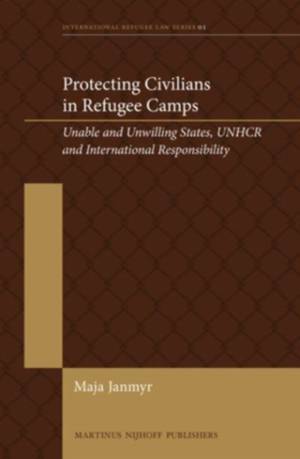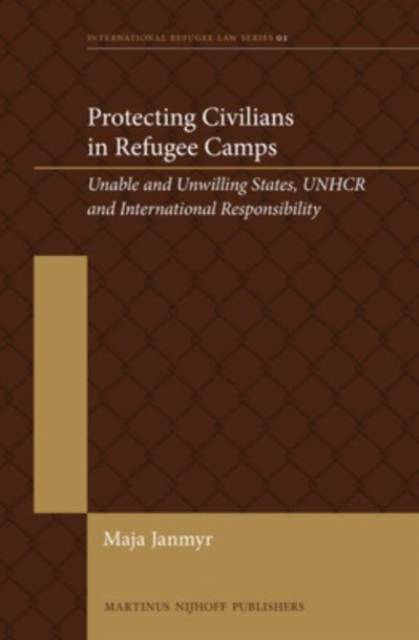
- Afhalen na 1 uur in een winkel met voorraad
- Gratis thuislevering in België vanaf € 30
- Ruim aanbod met 7 miljoen producten
- Afhalen na 1 uur in een winkel met voorraad
- Gratis thuislevering in België vanaf € 30
- Ruim aanbod met 7 miljoen producten
Zoeken
Protecting Civilians in Refugee Camps
Unable and Unwilling States, Unhcr and International Responsibility
Maja Janmyr
€ 287,95
+ 575 punten
Omschrijving
Rather than serving as civilian and humanitarian safe havens, refugee camps are notorious for their insecurity. Due to the host state's inability or unwillingness to provide protection, camps are often administered by the United Nations High Commissioner for Refugees (UNHCR) and its implementing partners. When a violation occurs in these situations, to which actors shall responsibility be allocated? Through an analysis of the International Law Commission's work on international responsibility, Maja Janmyr argues that the 'primary' responsibility of states does not exclude the responsibilities of other actors. Using the example of Uganda, Janmyr questions the general assumption that 'unable and unwilling' is the same as 'unable or unwilling', and argues for the necessity of distinguishing between these two scenarios. Doing so leads to different conclusions in terms of responsibility for the state, and therefore for UNHCR and its implementing partners.
Specificaties
Betrokkenen
- Auteur(s):
- Uitgeverij:
Inhoud
- Aantal bladzijden:
- 412
- Taal:
- Engels
- Reeks:
- Reeksnummer:
- nr. 1
Eigenschappen
- Productcode (EAN):
- 9789004256972
- Verschijningsdatum:
- 2/12/2013
- Uitvoering:
- Hardcover
- Formaat:
- Genaaid
- Afmetingen:
- 163 mm x 239 mm
- Gewicht:
- 748 g

Alleen bij Standaard Boekhandel
+ 575 punten op je klantenkaart van Standaard Boekhandel
Beoordelingen
We publiceren alleen reviews die voldoen aan de voorwaarden voor reviews. Bekijk onze voorwaarden voor reviews.








